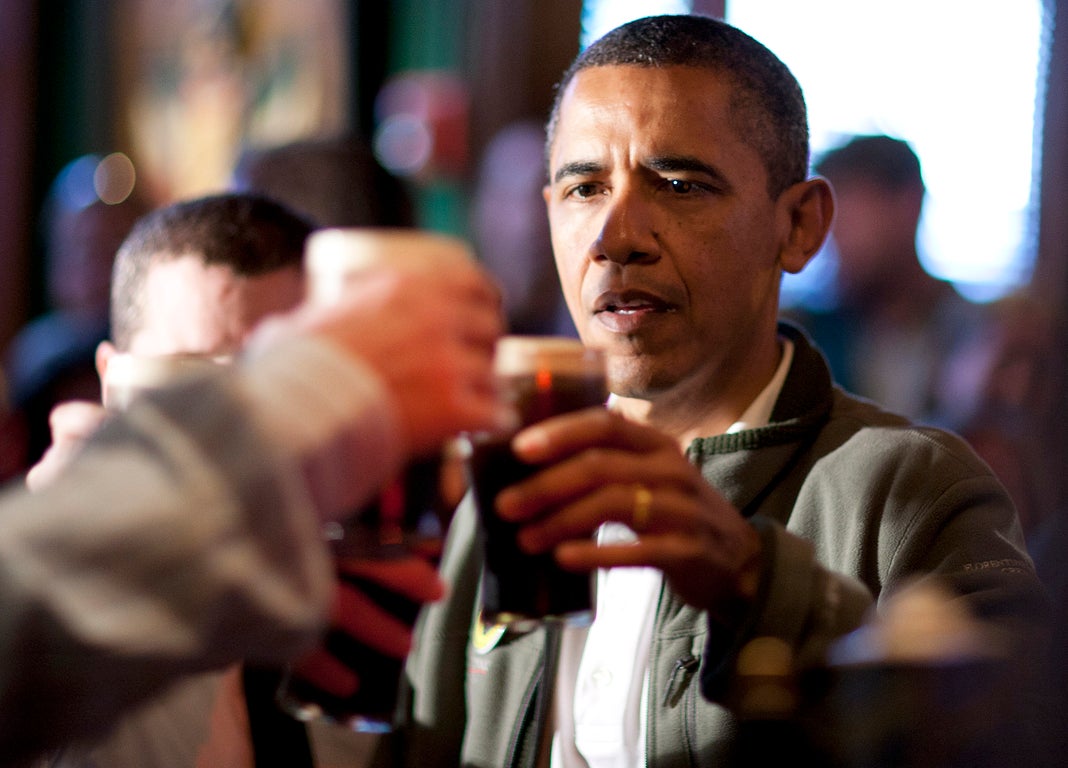Barack Obama, Mitt Romney, and why the need to be liked can still determine a presidential election
In the first of an occasional series, our writer - an American expat studying at St Andrews - wonders what role beer plays on popularity and policy in the US

It is strange what a pivotal role likability plays in the American presidential election. The electorate want personal qualities they can relate to in their future commander-in-chief, the I’d rather-have-a-beer with-him factor as it might be called. Mitt Romney clearly loses on this ground – he doesn’t even drink beer. It may not literally be held against him, but why people vote for the candidate they’d rather drink with seems as ludicrous as it is, at times, predictive.
In 2009, President Obama held the first 'Beer Summit' at the White House. It invited much criticism – not for its intentions or its result – but for the straight awkwardness of those men (a Cambridge police officer, Mr Obama, and an affronted Harvard professor) drinking beers together in the Rose Garden.
At an Iowa fairground last June, Mr Obama raised his glass to criticism once again. This time not for buying the round, which he did for as many the cash in his wallet could cover, but for costing the beer-tent owner $25,000 in lost profits. (It should be noted the owner wasn't giving him his vote regardless). The White House has even released a video for its house-hops recipe; the President is sure to bring a few bottles of the brew on the campaign trail.
Beer is besides the point, however. Staying normal while persuading hoi polloi that you are normal can't be easy. This is also true for Mr Romney – especially with his dry religion. Relating to the average citizen might be hard if you don't live like one. But what candidate does?Personal characteristics help the electorate trust a candidate's policy will be intentioned; likability and trustworthiness are one in the same for a politician.
Sadly, as a result, ephemeral affection may be the deciding factor of this election. I don't need to like the President realistically we won't be having a beer together. So I just truly hope that he can do his job. If only the “hard questions reach the President's desk,” as quoted in a Time magazine article recently, I think most would hope he's sober when he gets them.
President Obama has been facing these questions for nearly four years, still managing to remain likable and keeping beer on tap. At the end of the summer, according to a USA/Gallop pole, likability between Obama and Romney was twenty-three percentage points in favour of Obama, while “can manage the government effectively” was Obama's by only one percentage point. Differences in affection can often go a good way to reflecting differences in the polls, and the narrow margin deciding this election rests on likability.
A good leader, though, is not necessarily liked. Most important is how the job is done, not how the leader is as a person Like in the business world – personal life is relevant only when and how it affects business. Everything else is a nicety, or it belongs at home. Hopefully undecided voters will make a business decision.

Join our commenting forum
Join thought-provoking conversations, follow other Independent readers and see their replies